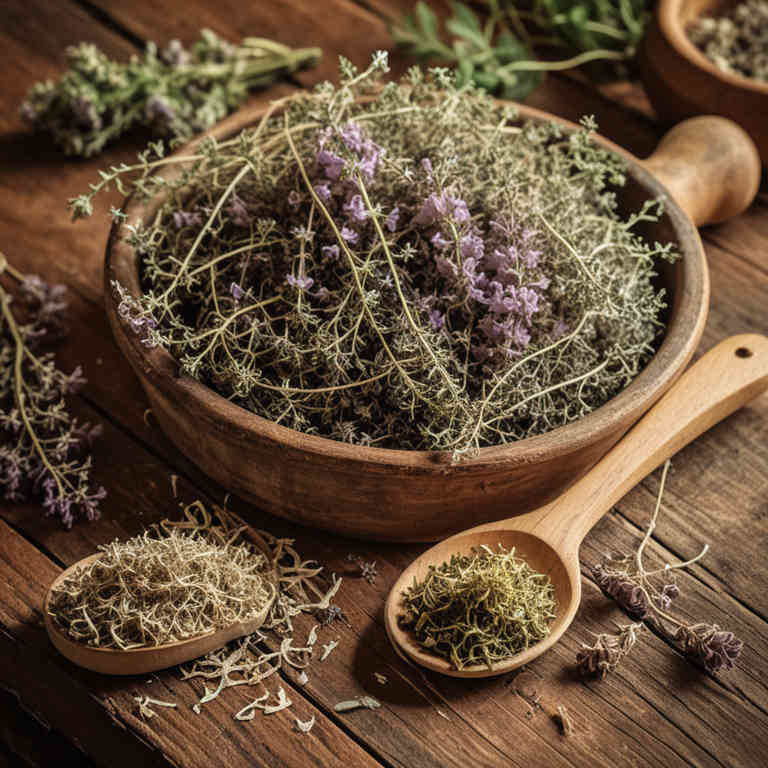Thymus vulgaris mucillage for medicinal use

Thymus vulgaris mucillage is a herbal preparation derived from the mucilage found in the plant Thymus vulgaris, commonly known as thyme.
This mucilage is extracted through a process that involves soaking the plant material in water to dissolve the sticky, gel-like substance. In herbalism, it is used for its soothing and demulcent properties, which can help to calm irritated mucous membranes. It is often employed to support respiratory health by alleviating coughs and sore throats.
Additionally, it may be used topically to soothe skin irritations and promote healing.
Uses
Thymus vulgaris mucillage has been used to treat respiratory and digestive ailments for centuries.
Historically, it was valued in traditional medicine for its soothing properties, often used to alleviate coughs, sore throats, and gastrointestinal discomfort. In ancient Greece and Rome, it was considered a remedy for inflammation and was incorporated into herbal formulations. Modern research suggests that its mucilage content may have anti-inflammatory and demulcent effects, supporting its use in contemporary herbal remedies.
Today, it is still utilized in complementary medicine for its potential to ease symptoms of respiratory conditions and support digestive health.
Benefits
Thymus vulgaris mucillage has health benefits such as supporting respiratory health, enhancing immune function, and promoting digestive wellness.
This herbal preparation is known for its anti-inflammatory and antimicrobial properties, which can help alleviate symptoms of respiratory conditions like coughs and bronchitis. It also aids in reducing inflammation in the digestive tract, making it beneficial for individuals with gastrointestinal issues. The mucilage content provides a soothing effect, helping to protect and repair mucous membranes throughout the body.
Overall, Thymus vulgaris mucillage is a versatile natural remedy that supports overall wellness and immune resilience.
Constituents
Thymus vulgaris mucillage active constituents include thymol, carvacrol, terpenes, flavonoids, and essential oils.
These compounds contribute to its antimicrobial, anti-inflammatory, and antioxidant properties. Thymol and carvacrol are primary phenolic compounds responsible for its potent antimicrobial effects. The mucilage component provides a soothing effect, making it beneficial for respiratory and digestive tract health.
Overall, this herbal preparation is valued for its ability to support immune function and alleviate symptoms of respiratory infections.
Preparation
To make Thymus vulgaris mucillage, start by gathering fresh or dried thyme leaves.
Wash the leaves thoroughly and chop them into small pieces to release the mucilage. Place the chopped leaves in a pot and add enough water to cover them by about an inch. Bring the mixture to a gentle simmer and let it cook for approximately 15 to 20 minutes, allowing the mucilage to dissolve into the water.
Strain the liquid through a fine mesh strainer or cheesecloth to separate the mucilage from the plant material, resulting in a viscous, herbal preparation.
Side Effects
Thymus vulgaris mucillage may lead to gastrointestinal discomfort, including nausea, vomiting, and diarrhea, due to its mucilaginous properties.
It may also cause allergic reactions in individuals sensitive to thyme or related plants. Prolonged use could potentially interfere with the absorption of certain medications due to its high fiber content. In some cases, it may contribute to bloating or gas as the body processes the mucilage.
It is important to consult a healthcare professional before using this preparation, especially for individuals with pre-existing digestive conditions.